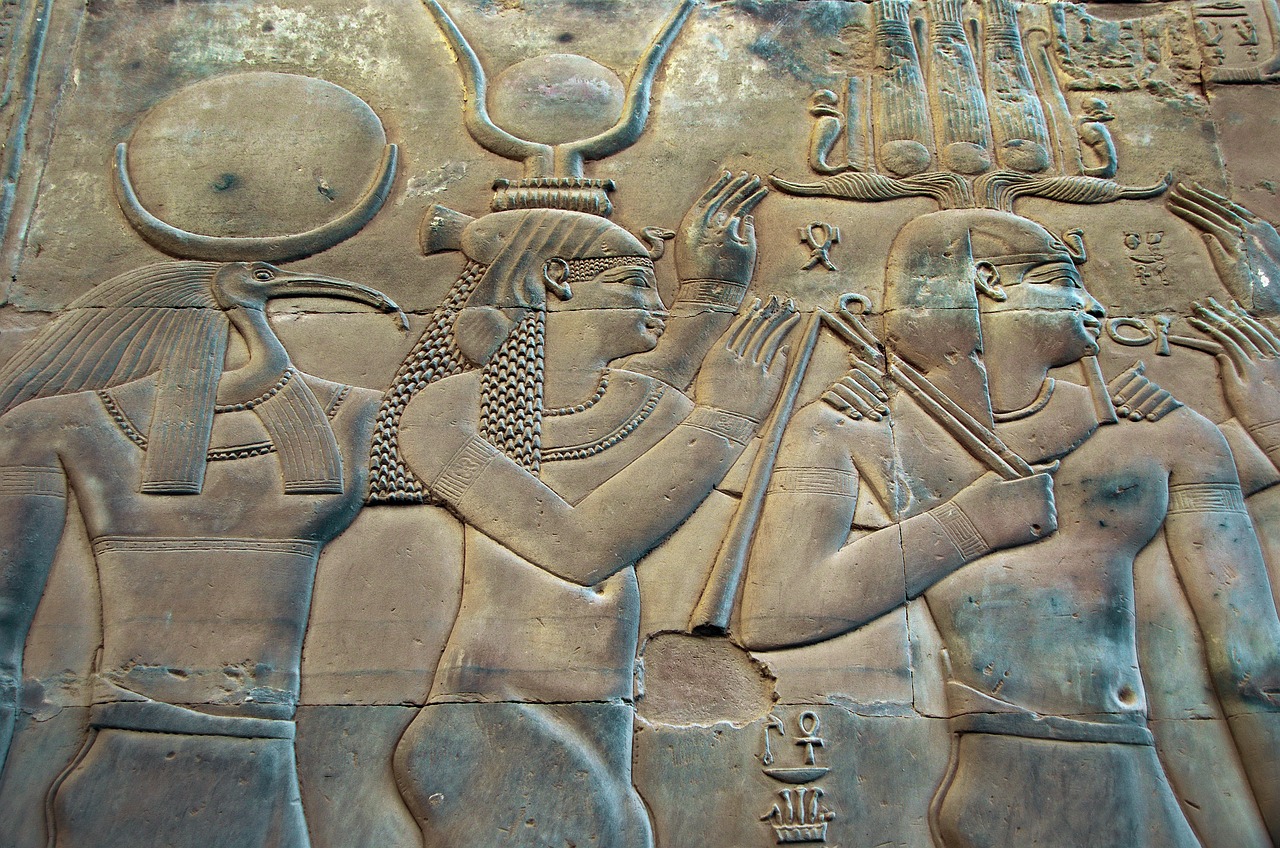Thoth, the Egyptian deity revered for wisdom, writing, and knowledge, occupies a prominent place in ancient mythology. Whether you are a student of history, a lover of myths, or simply inquisitive about past civilizations, exploring Thoth’s significance can enhance your comprehension of the cultural and spiritual beliefs of ancient Egyptians.
Who is Thoth in Ancient Egypt?
Thoth, often called Djehuty, stands out as a primary figure in Egyptian mythology. Frequently illustrated with the head of an ibis or sometimes a baboon, he is associated with Ra, the sun god, symbolizing not only divine intellect but also the harmonious fabric of the universe. Thoth’s contributions encompass wisdom, lunar activities, and the practice of writing.
Thoth’s Role as the Egyptian God of Wisdom
Worshipped for his sharp intellect, Thoth held the title of the deity representing wisdom. His divine role also included acting as a celestial scribe, diligently documenting both divine and human activities. Beyond his intellectual pursuits, Thoth was instrumental in formulating laws and establishing the calendar, thus integrating his wisdom into practical governance.
The Myths and Legends of Thoth
The stories surrounding Thoth are diverse, signifying his central role among the Egyptian gods:
Thoth and Osiris
One well-known narrative portrays Thoth’s involvement in the Osiris saga. He aided Isis in reviving Osiris by utilizing his magical abilities to reconstruct Osiris’s dismembered body. Thoth’s role extended to presiding over the judgment of deceased souls, where he meticulously recorded the outcomes during the heart-weighing ceremony.
The Book of Thoth
In mythological accounts, Thoth is credited with authoring the Book of Thoth, which encompasses all cosmic secrets. This fabled tome purportedly bestows significant wisdom and magical prowess upon its readers. However, the pursuit of this knowledge is often depicted as perilous, as illustrated by the tragic tale of Neferkaptah, an Egyptian prince, whose quest for the book resulted in dire consequences for himself and his kin.
Thoth and the Moon
Thoth’s bond with the moon features in a tale where he wagers with Khonsu, the moon god, to enhance lunar brightness. This myth narrates how Thoth gained additional light, leading to the creation of five extra days in the Egyptian calendar, which allowed the deities Nut and Geb to parent children. The story underscores Thoth’s creative ingenuity in sustaining cosmic order.
Symbols of Thoth
The symbols associated with Thoth encapsulate his divine essence and his contributions to wisdom and writing:
- Ibis: This elegant bird symbolizes intellect, embodying Thoth’s scholarly nature.
- Baboon: Revered in ancient culture, the baboon symbolizes Thoth’s lunar associations and his capacity to mediate between divine entities.
- Writing Palette and Stylus: These instruments signify his revolutionary introduction of writing, establishing him as the ultimate scribe of gods and humans.
What Powers Does Thoth Have?
Thoth’s supernatural powers are extensive, mirroring his esteemed position as the deity of wisdom:
- Unrivalled Intellect: His vast wisdom provides guidance to both mortals and gods.
-
Invention of Writing: Thoth is credited with the development of written communication, which transformed record-keeping.
-
Mediation: Thoth possesses the ability to resolve conflicts, ensuring equilibrium among deities.
-
Healing and Resurrection: His magical gifts enable him to cure afflictions and revive the deceased, showcasing his remarkable prowess.
Thoth’s Weaknesses
Despite his formidable image, Thoth is occasionally depicted with vulnerabilities. His mediatory role can place him in precarious situations, and his reliance on logic may create tensions, particularly with chaotic deities like Seth.
Thoth’s Relationships and Family Tree
Thoth’s relationships within the Egyptian pantheon illuminate his pivotal role in maintaining universal balance:
- Ma’at (Wife): As Thoth’s spouse, Ma’at embodies truth and cosmic order, their union symbolizing the essential balance of wisdom and truth vital for stability.
-
Seshat (Consort): In varying traditions, Thoth is also linked to Seshat, highlighting their cooperative efforts in the evolution and preservation of written language.
-
Horus and Set: Thoth served as a neutral mediator in the conflict between Horus and Set, underscoring his wisdom in resolving disputes over Egypt’s throne.
-
Osiris and Isis: He was a close companion to these deities, aiding them within the context of their historical narratives.
-
Khonsu: Shared myths between Thoth and Khonsu emphasize their collaborative dynamics in cosmic mechanics and timekeeping.
Frequently Asked Questions About Thoth in Mythology
- Who Was the Wife of Thoth?
Thoth’s wife, Ma’at, personifies truth, justice, and cosmic balance. -
Who Was The Greek Equivalent of Thoth?
In Greek mythology, Thoth is often equated with Hermes, both of whom are associated with communication and knowledge. -
Is the Book of Thoth Real?
The Book of Thoth is a legendary text symbolizing wisdom, though no tangible copies have been found. -
What is Thoth’s Place in the Zodiac?
Thoth is sometimes aligned with the zodiac sign of Virgo, known for its analytical traits. -
Is Odin the Same as Thoth?
Although both deities are associated with wisdom, Odin belongs to Norse mythology, while Thoth is from Egyptian lore. -
What is Thoth’s Sacred Number?
The number connected to Thoth is eight, representing cosmic order and infinity. -
What Are Thoth’s Colours?
White is Thoth’s primary color, symbolizing purity and wisdom. -
What is Thoth’s Gender?
Thoth is portrayed as male, embodying masculine characteristics complemented by his wife Ma’at. -
Who is Thoth’s Enemy?
Seth, the deity of chaos, is often depicted as Thoth’s primary adversary, representing the ongoing battle between order and disorder.
Conclusion
Unraveling the complexity of Thoth opens a fascinating door to the intricate belief system of ancient Egypt. Through his wisdom, powers, and relationships with other deities, Thoth illustrates the essential balance present in the Egyptian worldview.



